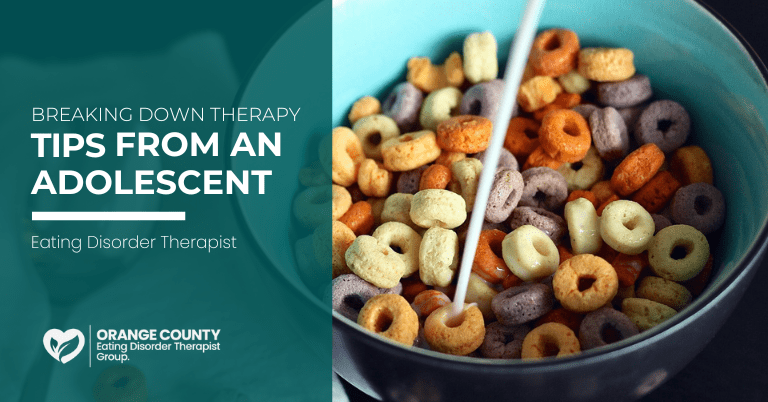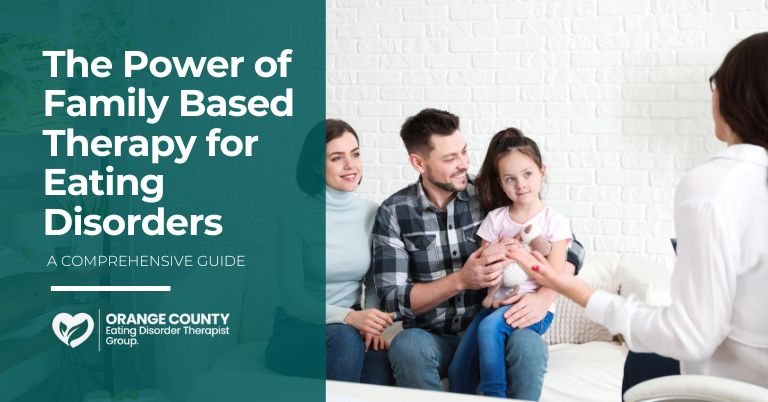Adolescent Eating Disorder Therapist
Eating disorders can significantly impact the physical and mental well-being of adolescents, presenting challenges for both affected individuals and their families. Recognizing the signs and symptoms of eating disorders early on is crucial for intervention and support.
Individuals struggling with eating disorders may benefit from seeking support from professionals such as an Adolescent Eating Disorder Therapist, Eating Disorder Therapist or Eating Therapist who specialize in providing specialized counseling and therapy tailored to address the underlying emotional and psychological aspects of disordered eating. Additionally, consulting with an Eating Disorder Dietician can offer valuable guidance on establishing a balanced and nourishing approach to food and nutrition.
In this comprehensive guide, we will explore the various types of eating disorders, how to identify them in adolescents, potential causes, and steps parents can take to support their children.
1. Types of Adolescent Eating Disorder Therapist
Eating disorders encompass a range of behavioral conditions characterized by abnormal or disturbed eating habits. The three most common types are:
- Anorexia nervosa: Individuals with anorexia nervosa fear gaining weight and have a negative view of their body or body image. They may engage in restrictive eating habits and in severe cases, may purge or vomit meals to combat weight gain, resulting in significant weight loss.
- Bulimia nervosa: Individuals with bulimia nervosa often struggle with binge eating episodes followed by compensatory behaviors to rid the body of the calories consumed. These behaviors may include purging, using laxatives or diuretics, fasting, or engaging in excessive exercise.
- Binge eating disorder: Individuals with binge eating disorder regularly consume large amounts of food in a short period, often feeling a loss of control during these episodes. Unlike bulimia nervosa, they do not engage in compensatory behaviors.
2. Identifying Adolescent Eating Disorder Therapist
Adolescents struggling with eating disorders often exhibit various warning signs, including:
- Binary self-worth perceptions: They may view their self-worth in terms of good or bad, often associating it with their weight and physical appearance.
- Obsession with weight and physical appearance: Constant preoccupation with weight loss, body image, or dieting, even if they are already underweight.
- Behavioral patterns: This includes secretive eating, skipping meals, excessive exercise, or visiting the bathroom soon after meals.
- Physical indicators: Signs such as dental cavities, irregular menstrual cycles, or fainting spells may also be present.
3. Understanding the Causes
The root causes of eating disorders can vary, but they often involve unresolved emotional issues and mental health conditions such as:
- Low self-esteem: Adolescents with low self-esteem may develop a negative body image and engage in disordered eating habits as a means of gaining control or validation.
- Anxiety disorders: Anxiety and stress can contribute to the development of disordered eating patterns as individuals may use food as a coping mechanism to manage their emotions.
- Depression: Depression can distort one’s perception of themselves and their relationship with food, leading to disordered eating behaviors as a way to cope with emotional distress.
What to Do if You Suspect Your Child Has an Eating Disorder
If you suspect your child is dealing with disordered eating, it’s important to approach the situation with care and concern. Steps you can take include:
- Avoid downplaying the issue and initiate a conversation with your child, demonstrating your concern and willingness to help.
- Seek professional guidance from licensed adolescent eating disorder therapist or counselors who specialize in treating eating disorders.
- Provide ongoing support and understanding, creating a safe and non-judgmental environment for your child to express their feelings and concerns.
Conclusion
Eating disorders in adolescence require prompt attention and support from parents and caregivers. By recognizing the warning signs, understanding potential causes, and seeking professional assistance, families can navigate this challenging issue with compassion and effectiveness. Remember, early intervention is key to promoting recovery and overall well-being.
Seeking help from an Adolescent Eating Disorder Therapist or Eating Disorder Specialist ensures access to specialized care and expertise in managing the complexities of eating disorders. Furthermore, engaging in Eating Disorder Counseling provides a supportive environment for individuals to explore their relationship with food and develop healthy coping strategies.
Accessing Eating Disorder Resources such as support groups, educational materials, and online forums can also offer valuable support and information on navigating the journey towards recovery.
Contact OCEATING for more information.
FAQs
Are eating disorders common in adolescents?
Yes, eating disorders often emerge during adolescence, affecting individuals of all genders.
How can I approach my child if I suspect they have an eating disorder?
Approach the conversation with care and concern, emphasizing your support and willingness to help.
What role do parents play in supporting a child with an eating disorder?
Parents can provide emotional support, seek professional guidance, and create a supportive environment for their child’s recovery journey.











